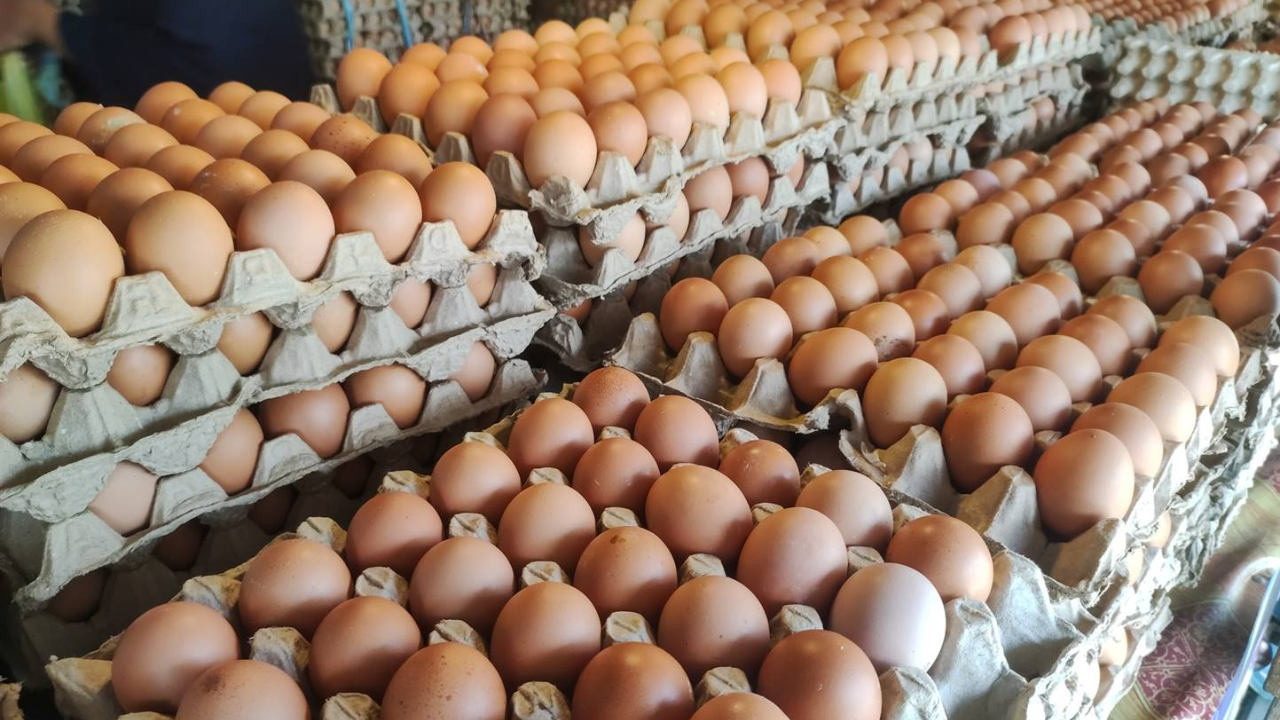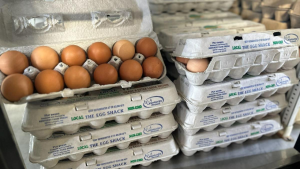Iowa, the nation’s leading egg producer, is grappling with a significant surge in egg prices due to a widespread avian influenza outbreak.
The epidemic has led to the culling of millions of hens, drastically reducing egg supplies and driving prices to unprecedented levels.
Impact of Avian Influenza on Iowa’s Poultry Industry
The highly pathogenic avian influenza (HPAI), commonly known as bird flu, has severely impacted Iowa’s poultry sector.
Recent reports indicate that since December 2024, more than 6.7 million egg-laying hens in Iowa have been culled to contain the virus’s spread.
This substantial reduction in the state’s laying hen population has directly contributed to the escalating egg prices.
Record-Breaking Egg Prices
The decrease in egg production has led to a sharp increase in prices. In January 2025, the average retail price for a dozen large Grade A eggs in the U.S. reached $4.95, more than doubling from the previous year.
Wholesale prices have also seen significant hikes, with the national average for large white eggs reaching $7.34 per dozen in early February.
Broader Economic Implications
The surge in egg prices is contributing to overall inflation, affecting consumers’ grocery bills nationwide.
In January, consumer costs for eggs rose by 15.2%, marking the steepest monthly increase since June 2015.
This surge is largely attributed to the avian influenza outbreak that has decimated hen populations nationwide, pushing egg costs up by 53% from the previous year.
Measures to Control the Outbreak
To mitigate the spread of HPAI, the Iowa Department of Agriculture and Land Stewardship, in collaboration with the U.S. Department of Agriculture (USDA), has implemented stringent biosecurity measures.
These include quarantining affected premises, culling infected and exposed birds, and conducting thorough disinfection procedures.
Poultry producers are urged to enhance biosecurity practices and report any signs of illness in their flocks promptly.
Read More:
- Indiana Farmers Respond to Skyrocketing Egg Prices!
- Illinois Grocery Stores Struggle to Keep Egg Prices Down!
Consumer Impact and Responses
The rising egg prices have led consumers to seek alternatives and adjust their purchasing habits.
Some grocery chains, such as Trader Joe’s and Costco, have implemented purchase limits to manage the shortage and ensure equitable distribution among customers.
Additionally, consumers are exploring substitutes like tofu, applesauce, and flaxseeds in their diets to cope with the limited egg supply.
Future Outlook
The duration of elevated egg prices remains uncertain and is contingent on controlling the avian influenza outbreak and replenishing the laying hen population.
The USDA is funding research into vaccines to protect poultry, though widespread vaccination is not imminent.
In the meantime, consumers and producers alike must navigate the challenges posed by this unprecedented situation.
Conclusion
The avian influenza outbreak has profoundly affected Iowa’s poultry industry, leading to record-high egg prices and significant economic implications.
As authorities and producers work to contain the virus and restore production levels, consumers are encouraged to stay informed and consider alternative options to mitigate the impact on their households.
Disclaimer- Our team has thoroughly fact-checked this article to ensure its accuracy and maintain its credibility. We are committed to providing honest and reliable content for our readers.






















+ There are no comments
Add yours